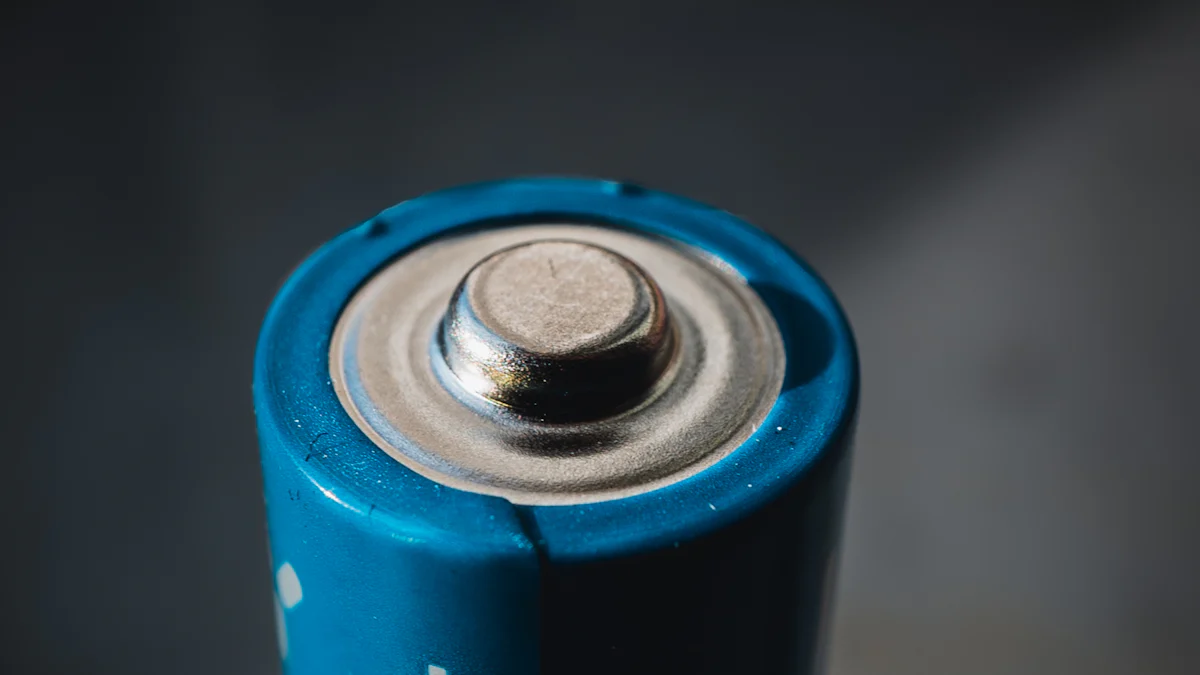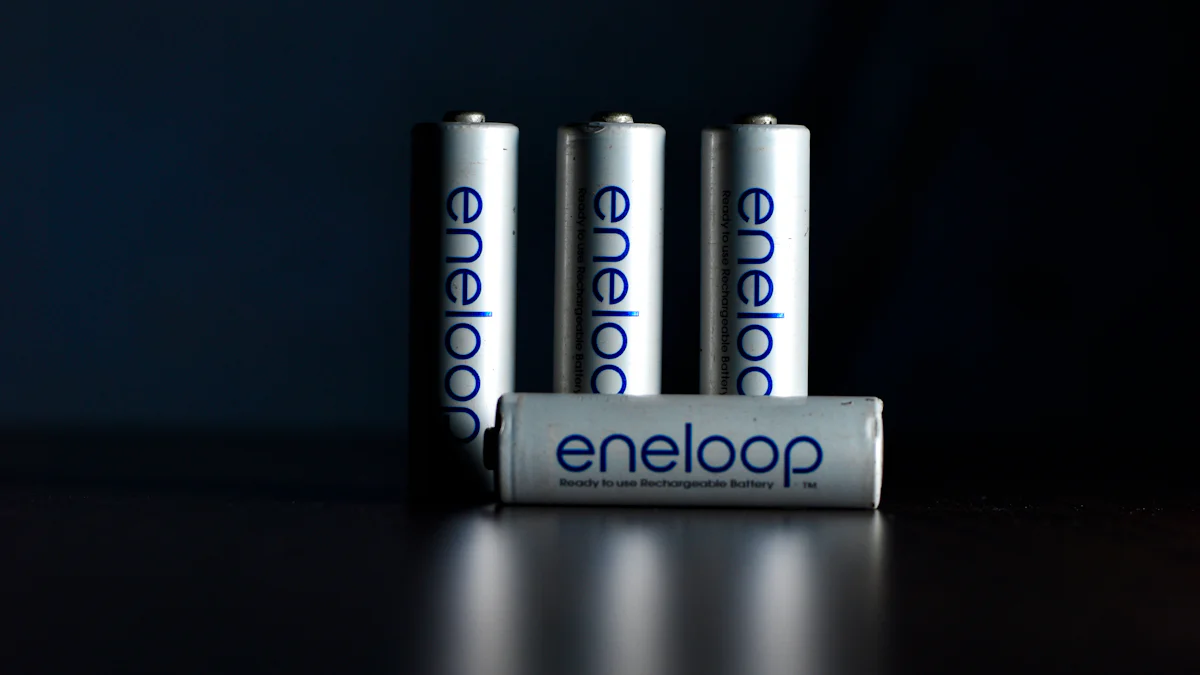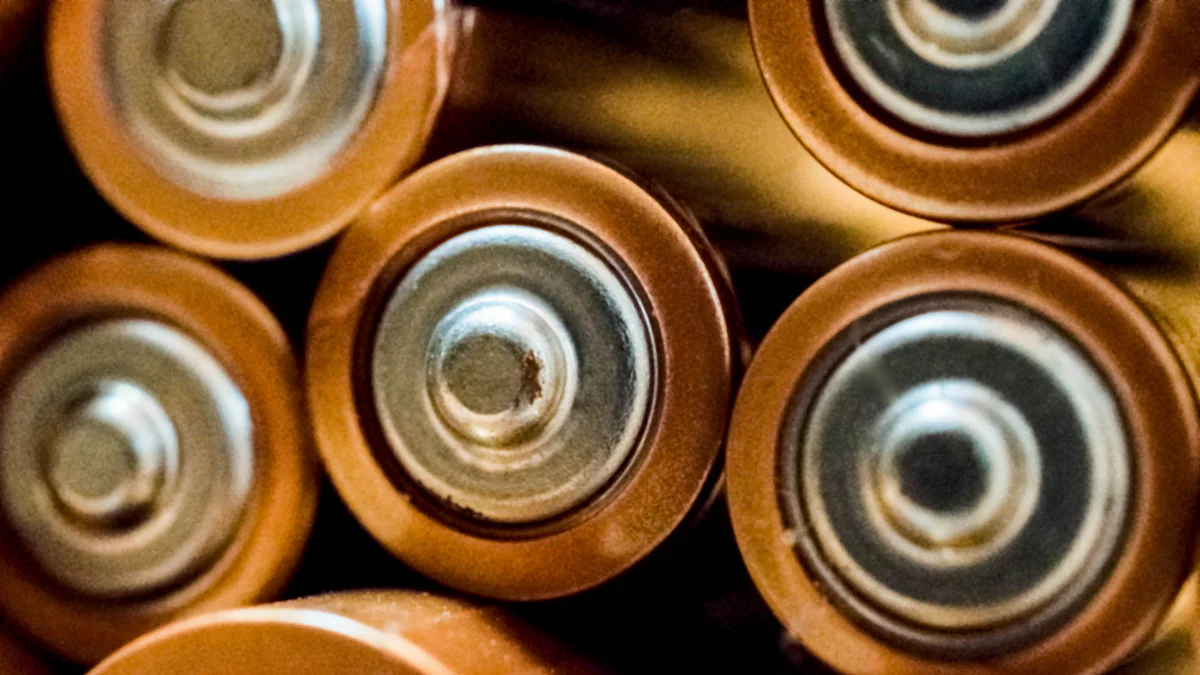
Proper use and care of a bunch alkaline battery ensure its longevity and efficiency. Users should always select batteries that match the device’s requirements to avoid performance issues. Regular maintenance, such as cleaning battery contacts, prevents corrosion and enhances functionality. Safe disposal is equally critical. Improper disposal can lead to water pollution, soil contamination, and even health risks due to chemicals seeping into groundwater. Recycling batteries reduces these risks and supports environmental sustainability. Following trusted advice not only optimizes battery performance but also promotes safety and eco-friendly practices.
Key Takeaways
- Pick the right alkaline battery for your device. Check the power needs and expiration date before buying.
- Install batteries properly to avoid damage. Match the terminals correctly and check for leaks first.
- Keep batteries in a cool, dry spot to last longer. Don’t refrigerate them and store different types apart to avoid problems.
- Throw away batteries safely to help the environment. Use recycling programs and don’t toss them in regular trash.
- Teach your family about safe battery use. Keep batteries away from kids and pets to stop accidents.
Understanding Bunch Alkaline Batteries
What Are Bunch Alkaline Batteries?
Bunch alkaline batteries are a type of disposable power source designed for everyday use. They rely on an alkaline electrolyte, typically potassium hydroxide, to generate energy through chemical reactions. These batteries are known for their ability to deliver consistent power over extended periods. Their design ensures compatibility with a wide range of devices, making them a reliable choice for both household and professional applications. Manufacturers like Johnson New Eletek Battery Co., Ltd. focus on producing high-quality alkaline batteries to meet diverse consumer needs.
Benefits of Using Bunch Alkaline Batteries
Bunch alkaline batteries offer several advantages that make them a preferred choice for many users. Their long shelf life ensures they remain functional even after extended storage. They provide steady voltage output, which helps devices operate efficiently without sudden power drops. Additionally, these batteries are cost-effective due to their durability and ability to power devices for longer durations compared to other types. Their versatility also allows them to be used in various devices, enhancing their practicality. By choosing a bunch alkaline battery, users can enjoy dependable performance and value for money.
Common Applications of Bunch Alkaline Batteries
Bunch alkaline batteries power a wide array of devices, making them indispensable in daily life. Common applications include:
- Portable media players
- Digital cameras
- Toys
- Flashlights
- Radios
Their ability to deliver consistent energy makes them ideal for devices requiring reliable performance. Whether for entertainment, safety, or communication, these batteries ensure uninterrupted functionality. Their widespread use highlights their importance in modern living.
Tips for Proper Usage
Selecting the Right Bunch Alkaline Battery
Choosing the appropriate bunch alkaline battery ensures optimal device performance. Users should first identify the specific power requirements of their devices. Batteries come in various sizes and capacities, so selecting one that matches the device specifications is crucial. For example, high-drain devices like cameras require batteries with greater energy output, while low-drain devices like remote controls can use standard options. Checking the expiration date before purchase guarantees maximum efficiency and shelf life. Additionally, purchasing from reputable manufacturers, such as Johnson New Eletek Battery Co., Ltd., ensures reliability and quality.
Correct Installation Techniques
Proper installation of a bunch alkaline battery prevents damage and enhances performance. Following these steps ensures safe and effective use:
- Inspect batteries for any signs of leakage or damage before installation.
- Confirm the expiration date to ensure the battery’s efficiency.
- Align the positive (+) and negative (-) terminals correctly with the device’s markings.
- Avoid physical shocks during installation to prevent internal damage.
- Remove batteries from devices not in use for extended periods to prevent leaks.
Educating users about these practices promotes better handling and extends battery life.
Avoiding Overuse and Overheating
Overuse and overheating can significantly reduce the lifespan of a bunch alkaline battery. Users should monitor devices to avoid prolonged operation beyond the battery’s capacity. Excessive heat, often caused by overuse, can lead to leaks or even battery failure. Keeping devices in well-ventilated areas minimizes the risk of overheating. Additionally, users should avoid mixing old and new batteries in the same device, as this can cause uneven energy distribution and overheating. By following these precautions, users can maintain the battery’s integrity and ensure consistent performance.
Maintenance and Storage

Extending the Life of Bunch Alkaline Batteries
Proper maintenance significantly extends the lifespan of a bunch alkaline battery. Users should follow these essential practices:
- Store batteries in a cool, dry location to reduce the natural discharge rate.
- Maintain moderate humidity levels to prevent corrosion on battery terminals.
- Keep different battery types and sizes separate to avoid accidental short-circuiting.
- Avoid refrigerating or freezing batteries, as condensation can damage internal components.
- Rotate battery stock using a first-in, first-out system to ensure older batteries are used first.
- Inspect batteries for signs of leakage or physical damage before use.
- Use batteries before their expiration date to achieve maximum efficiency.
- Remove batteries from devices that will not be used for extended periods.
- Handle batteries carefully to prevent dents or other physical damage.
- Educate all users on proper handling and storage techniques.
By implementing these steps, users can maximize the performance and longevity of their batteries.
Best Storage Practices
Storing batteries correctly prevents unnecessary damage and ensures they remain functional when needed. A cool, dry environment slows the discharge rate, preserving energy for longer periods. Moderate humidity levels help avoid corrosion, which can impair battery performance. Separating battery types and sizes minimizes the risk of short circuits. Refrigeration or freezing should be avoided, as these conditions can compromise the battery seals and lead to condensation damage. Rotating stock ensures that older batteries are used first, reducing the likelihood of expired batteries being stored. These practices create an optimal storage environment for maintaining battery quality.
Preventing Leaks and Damage
Battery leaks and physical damage can render a bunch alkaline battery unusable and harm devices. To prevent leaks, users should remove batteries from devices not in use for extended periods. Regularly inspecting batteries for signs of corrosion or leakage ensures early detection of potential issues. Avoiding exposure to extreme temperatures, both hot and cold, protects the battery’s structural integrity. Additionally, users should never mix old and new batteries in the same device, as this can cause uneven energy distribution and increase the risk of leaks. Proper handling and storage practices safeguard batteries from damage, ensuring reliable performance.
Safety Tips for Bunch Alkaline Batteries
Safe Handling Practices
Proper handling of batteries ensures safety and prevents accidents. Users should always inspect a bunch alkaline battery for visible damage or leakage before use. Damaged batteries can release harmful chemicals, posing risks to both devices and individuals. When installing or removing batteries, individuals should avoid using excessive force to prevent physical damage. Holding batteries by their ends, rather than their sides, minimizes the risk of short circuits.
Storing batteries away from metal objects, such as keys or coins, prevents accidental contact between terminals. This precaution reduces the likelihood of overheating or sparking. Users should also avoid mixing different brands or types of batteries in the same device, as this can lead to uneven energy distribution and potential malfunctions. Following these practices ensures safe and efficient battery use.
Steps to Take in Case of a Leak
Battery leaks can occur due to improper storage or prolonged use. If a leak is detected, users should handle the situation with care. Wearing gloves protects the skin from coming into contact with the leaked chemicals. Any affected surfaces or devices should be cleaned using a mixture of baking soda and water to neutralize the alkaline substance.
Leaked batteries must be disposed of immediately using proper disposal methods. Devices exposed to leaks should be inspected for damage before further use. If the leak has caused significant corrosion, professional repair or replacement may be necessary. Taking swift action minimizes the risk of harm and preserves the functionality of devices.
Keeping Batteries Out of Reach of Children and Pets
Batteries can pose serious risks to children and pets if mishandled. Storing a bunch alkaline battery in a secure location, such as a locked drawer or cabinet, prevents accidental ingestion or choking. Educating household members about the dangers of batteries ensures everyone understands the importance of proper handling.
For added safety, users should consider purchasing child-resistant battery packaging. This precaution reduces the likelihood of accidental access. By keeping batteries out of reach, individuals can create a safer environment for their families and pets.
Proper Disposal and Recycling

Importance of Responsible Disposal
Proper disposal of a bunch alkaline battery is essential for protecting environmental health. Improper disposal can lead to the leakage of heavy metals and corrosive chemicals, which pose significant risks to ecosystems and human health.
- In California, all batteries are classified as hazardous waste, and their disposal in household trash is prohibited.
- The European Union enforces regulations requiring stores to accept old batteries for recycling, emphasizing the global importance of responsible disposal.
These measures highlight the critical role individuals play in reducing environmental harm. By disposing of batteries responsibly, users can prevent contamination of soil and water sources, ensuring a safer environment for future generations.
Safe Disposal Methods for Bunch Alkaline Batteries
Safe disposal methods help minimize the environmental impact of used batteries. Users can follow these practical steps:
- Contact local solid waste districts to inquire about collection programs or special disposal events.
- Use Earth911’s Recycling Search to locate nearby recycling centers that accept single-use batteries.
- Participate in mail-in recycling programs, which provide containers for safely shipping used batteries.
These options make it easier for individuals to dispose of batteries in an eco-friendly manner. Adopting these practices ensures compliance with disposal regulations and reduces the risk of environmental damage.
Recycling Options and Environmental Benefits
Recycling a bunch alkaline battery offers numerous environmental benefits. It prevents harmful materials from entering landfills, where they could cause long-term damage. Recycling also eliminates dangerous chemicals, such as battery acid, that might otherwise contaminate soil and water.
- Conserving natural resources is another advantage. Materials like copper and aluminum can be recovered and reused, reducing the need for new resource extraction.
- Recycling supports sustainable practices by decreasing the demand for raw materials and lowering the carbon footprint associated with battery production.
By choosing to recycle, users contribute to a cleaner environment and promote the efficient use of resources.
Manufacturers and Origins of Alkaline Batteries
Leading Producers of Alkaline Batteries
Several manufacturers dominate the alkaline battery market, each offering unique features that cater to diverse consumer needs. The table below highlights some of the leading producers and their distinguishing characteristics:
| Manufacturer | Country | Distinguishing Features |
|---|---|---|
| Panasonic Corporation | Japan | Known for a wide range of non-rechargeable alkaline batteries. |
| FDK Corporation | Japan | Specializes in alkaline batteries with a focus on performance and reliability. |
| GPB International Limited | Germany | Offers a variety of alkaline batteries with competitive pricing and quality assurance. |
| Duracell | USA | Introduced Coppertop batteries with new Power Boost ingredients for enhanced performance. |
These companies have established themselves as trusted names in the industry by consistently delivering high-quality products. Their innovations and commitment to reliability make them popular choices among consumers worldwide.
Who Makes Kirkland Alkaline Batteries?
Kirkland alkaline batteries, a private-label brand sold exclusively at Costco, are manufactured by Duracell. This partnership ensures that Kirkland batteries maintain the same level of quality and performance associated with Duracell products. Consumers often choose Kirkland batteries for their affordability without compromising on reliability. The collaboration between Costco and Duracell exemplifies how private-label brands can offer premium products at competitive prices.
Are Any Batteries Made in the USA?
While the USA imports a significant number of alkaline batteries, some are still manufactured domestically. Energizer, a well-known brand, produces batteries in the United States. However, their performance varies depending on the manufacturing location. For instance:
- Energizer batteries made in the USA perform reasonably well but do not surpass top competitors.
- Those manufactured in China deliver comparable results to leading brands like Duracell.
- Batteries produced in Indonesia and Poland exhibit lower performance levels.
The USA remains a global leader in alkaline battery imports, with 18,629 shipments recorded between March 2023 and February 2024. Most imports originate from China, Malaysia, and Singapore, reflecting the international nature of the battery supply chain.
Proper use, maintenance, and disposal of a bunch alkaline battery ensure optimal performance and longevity. Selecting the right battery, following correct installation techniques, and storing them in ideal conditions prevent damage and extend their lifespan. Safe handling and responsible disposal protect users and the environment from potential harm. Recycling batteries reduces waste and conserves resources, promoting sustainability. By applying these trusted tips, users can enhance battery efficiency while contributing to a safer and greener future.
FAQ
What makes bunch alkaline batteries different from other types of batteries?
Bunch alkaline batteries use potassium hydroxide as an electrolyte, offering consistent power and a longer shelf life. Their durability and compatibility with various devices make them a reliable choice for everyday use. Unlike rechargeable batteries, they are disposable and designed for single-use applications.
How can users identify the correct battery size for their devices?
Users should check the device’s manual or battery compartment for size specifications, such as AA, AAA, or 9V. Matching the battery size ensures proper fit and optimal performance. If unsure, consulting the manufacturer’s guidelines or packaging can provide clarity.
Can bunch alkaline batteries be used in high-drain devices?
Yes, bunch alkaline batteries work well in high-drain devices like cameras and portable gaming systems. However, users should select batteries with higher energy output for such applications. Checking the device’s power requirements ensures compatibility and prevents performance issues.
How should users dispose of bunch alkaline batteries safely?
Users should avoid throwing batteries in regular trash. Instead, they can contact local waste management services for disposal guidelines or use recycling programs. Many retailers and community centers offer battery collection points to ensure eco-friendly disposal.
Are bunch alkaline batteries safe for use in extreme temperatures?
Bunch alkaline batteries perform best in moderate temperatures. Extreme heat or cold can reduce their efficiency and lifespan. Storing batteries in a cool, dry place and avoiding prolonged exposure to harsh conditions ensures consistent performance and prevents damage.
Post time: Jan-13-2025




